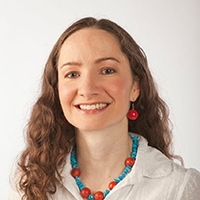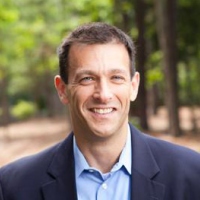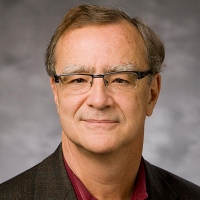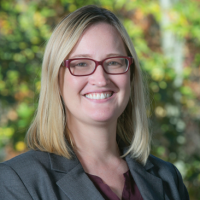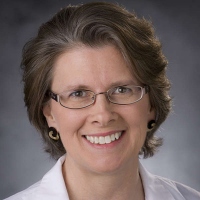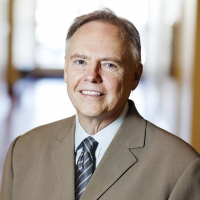Interested in learning more about Bass Connections from the point of view of faculty? Here, Duke faculty members reflect on their experience. Inspired? Learn how you can get involved in Bass Connections.
Faculty Perspectives
I have found leading Bass Connections to be professionally transformational for me as an educator. Working with students across schools and programs brought new meaning to interdisciplinary research. I learned the importance of establishing “baseline” with all content and skills, and leveraging unique talents, experiences and knowledge. I am forever committed to engaging undergraduate students in clinical and population health research. full profile »
We start with research questions, but students are driving the research design. It’s been super useful to engage students this way as it provides them with true ownership of the project. It’s been a tremendous opportunity to work on this, and our students have been amazing. The infection rate was in the forties when we started. Through this project it has dropped down to less than 8%, driven mainly by the work that undergrads were able to do. full profile »
For us, the repeated engagement of different faculty members has been really important to success, and it’s what our students reflect on the most. I see the appreciation in the students for the fact that an undergraduate elsewhere may not ever have a relationship with a professor, outside of receiving information in class. full profile »
Collaborative projects have been crucial to my engagement with colleagues and students across the university. Bass Connections has enabled me to work with teams to investigate complex topics like protecting the Earth’s stratospheric ozone layer and climate, how to assess and manage emerging technologies such as automated vehicles and how to protect drinking water. full profile »
The Bass Connections project has opened my eyes to the potential of fully inquiry-based, student-initiated teaching, learning and research. I have been impressed with students’ ability and ambition in structuring their own experience and drawing on the resources available to them, including faculty mentors, university resources and community organizations. In addition to being an incredible experience itself, it has also informed the way I teach my more ‘conventional’ classes. full profile »
The best part about the experience has been the new connections – with students, faculty and community partners, with whom I would otherwise not have had the opportunity to interact. The influx of new ideas and perspectives has been enriching, and it is very exciting to consider the new avenues of research that have opened up. full profile »
When I arrived at Duke, I wanted to develop relationships with people across campus, not just in the School of Medicine. [In a Bass Connections project] we partnered with folks from engineering and Duke Primary Care to develop an iPad app that could facilitate screening for autism. Two thousand families downloaded this app and completed a questionnaire. It was phenomenally successful. This led to several published papers and a successful competition for an NIH grant. full profile »
I have been leading Bass Connections projects since 2013 and love project-based education. I think students benefit greatly from being in an interdisciplinary setting. These projects also give you the chance to examine the relevance and applications of your research. They’re where all the pieces get connected. full profile »
The healthcare policy world has been criticized for being insular, and its resistance to voices outside medicine has been blamed for many of its shortcomings. As an economist and a lawyer, I’m an outsider myself, but I knew that a deeply interdisciplinary team could develop a creative list of Medicaid reforms that a traditional medicine-oriented team could not. I recruited grad students, found an outstanding doctoral student in nursing and got a very nice cross-section of undergrads. full profile »
One of the things that has been the most exciting has been student engagement. This is especially true on the part of the three graduate students who have impacted our research direction. These students have begun dissertation projects oriented around our research, and we’ve had an undergraduate writing an honors thesis directly related to our team’s work. We have also seen involvement from additional departments at Duke. Overall, this project has been a wonderful experience. full profile »
The project was a great experience in terms of figuring out what sort of research tasks – including primary data collection – undergraduates are capable of and what could be a meaningful experience for them. Though the project took a bit of fine-tuning, with practice we learned to refine what worked based on our group’s dynamic and the type of research question we were asking. [In the second year, we] produced a high-quality article with all the undergraduates on the team as co-authors. full profile »
I can say as a geriatrician in the Department of Medicine that it has been a very enriching experience to work with my faculty colleagues Cassandra Germain, a neuropsychologist, and Tobias Overath, a neuroscientist. They have stretched me, helped me to connect my clinical interests to fundamental neuroscience and been very forgiving when my clinical schedule made it a challenge for me to attend meetings. And the Duke undergraduate students are so amazing. full profile »
We put together teams of Pratt and Trinity undergraduates, as well as graduate students, to come up with their own ideas of what they’re interested in working on in the realm of energy and the environment. Every year, they come up with awesome things. I see that the learning process in working on teams is such a rich way to learn from each other. I find that I want more and more of that small group experience and exploration in my research and teaching. full profile »
Our class Performance and Technology is cross-listed in Electrical and Computer Engineering, Information Science, Theater Studies and Dance. We get an incredibly eclectic group of students taking it. The Bass Connections team does things that spin out of the class and we take further. Creating artists who understand technology, and engineers who understand art, is what our class and project are all about. I like to think about it like a vocabulary. full profile »
Our team is conducting a global value chain analysis of the launch of chlorhexidine (CHX) for umbilical cord care in Bangladesh. We’re not just looking at the supply chain, but more broadly looking at all the factors surrounding the production, distribution and adoption of CHX by health care workers and mothers. Seventy percent of the births in Bangladesh are home births…. We needed students from many disciplines. One thing was true of them all: they had pluck! full profile »
















